10 Best Keyword Research Tools For Affiliate Marketers (Free & Paid)

Affiliate marketing depends on getting the right people to your site. Without the right keywords, you’re just guessing. You could write the best content out there, but if no one’s searching for it, it won’t matter.
Keyword research helps you find the exact words and phrases people type into search engines. The goal is to simply rank for terms that bring in real buyers, not just random visitors.
However, not all keywords are worth targeting. Some are so competitive that ranking is nearly impossible. You can’t just go after “best running shoes” and expect to outrank Nike. That’s where keyword research tools come in. They help you uncover low-competition, high-value keywords that you actually have a chance to rank for.
Free tools give you a solid starting point, but paid tools take things further. They show keyword difficulty, competitor insights, and traffic estimates, which help you avoid wasted effort.
The better your research, the more organic traffic you’ll get without chasing impossible keywords.
In this post, I’ll break down the Best Keyword Research Tools For Affiliate Marketers both free and paid so you can find the one that fits your budget and strategy.
What Makes a Great Keyword Research Tool?
Not all keyword tools are worth using. Some give weak data, while others make things too complicated. A great tool should be accurate, easy to use, and packed with useful insights.
1. Accuracy Matters
If the data is off, you’re wasting time. A good tool pulls real numbers from search engines, not guesses. You need trustworthy search volume, competition levels, and keyword difficulty scores. Otherwise, you’ll target the wrong keywords and struggle to rank.
2. Competition Analysis
Ranking isn’t just about choosing keywords—it’s about beating the competition. A solid tool shows who’s ranking, their backlinks, and how hard it is to outrank them. Without this, you might chase keywords that are impossible to rank for.
3. Search Volume: Don’t Get Fooled
More searches don’t always mean better. Some keywords have high volume but no buying intent. Others are low-volume but bring in the right traffic. A great tool helps you balance volume with ranking chances.
4. Ease of Use
Some tools feel like they were built for data analysts, not marketers. You shouldn’t need a manual to use them. A clean, simple layout saves time and keeps you focused on finding the best keywords.
5. Free vs. Paid Tools—When to Invest
Free tools work for basic research. Google Keyword Planner, Ubersuggest, and AnswerThePublic give a decent starting point. But they have limits—some hide data, others lack competition analysis.
Paid tools unlock deeper insights. Ahrefs, SEMrush, and KWFinder give detailed difficulty scores, backlink data, and competitor research. If you’re making money with affiliate marketing, a paid tool is an investment, not an expense.
A great keyword tool isn’t about fancy features. It’s about giving you the right data to find keywords, rank, and get traffic that actually converts.
Best Keyword Research Tools for Affiliate Marketers
- Google Keyword Planner (Free) – Best for finding search volume data straight from Google.
- Ahrefs Keywords Explorer (Paid) – Best for in-depth keyword research and competition analysis.
- SEMrush Keyword Magic Tool (Paid) – Great for finding long-tail keywords and CPC data.
- Ubersuggest (Freemium) – A solid budget-friendly option for keyword research.
- Moz Keyword Explorer (Paid) – Helps analyze keyword difficulty and SERP data.
- KWFinder by Mangools (Paid) – Best for finding low-competition keywords in niche markets.
- AnswerThePublic (Freemium) – Great for uncovering question-based keywords.
- KeywordTool.io (Freemium) – Uses Google Autocomplete to generate keyword ideas.
- Keyword.com (Paid) – Best for tracking keyword rankings with real-time, location-based accuracy
- Serpstat (Paid) – A powerful all-in-one SEO tool with strong keyword features.
Each of these tools has its strengths. Some are better for beginners, while others offer deep data for experienced marketers. Now, let’s break them down one by one.
1. Google Keyword Planner (Free)
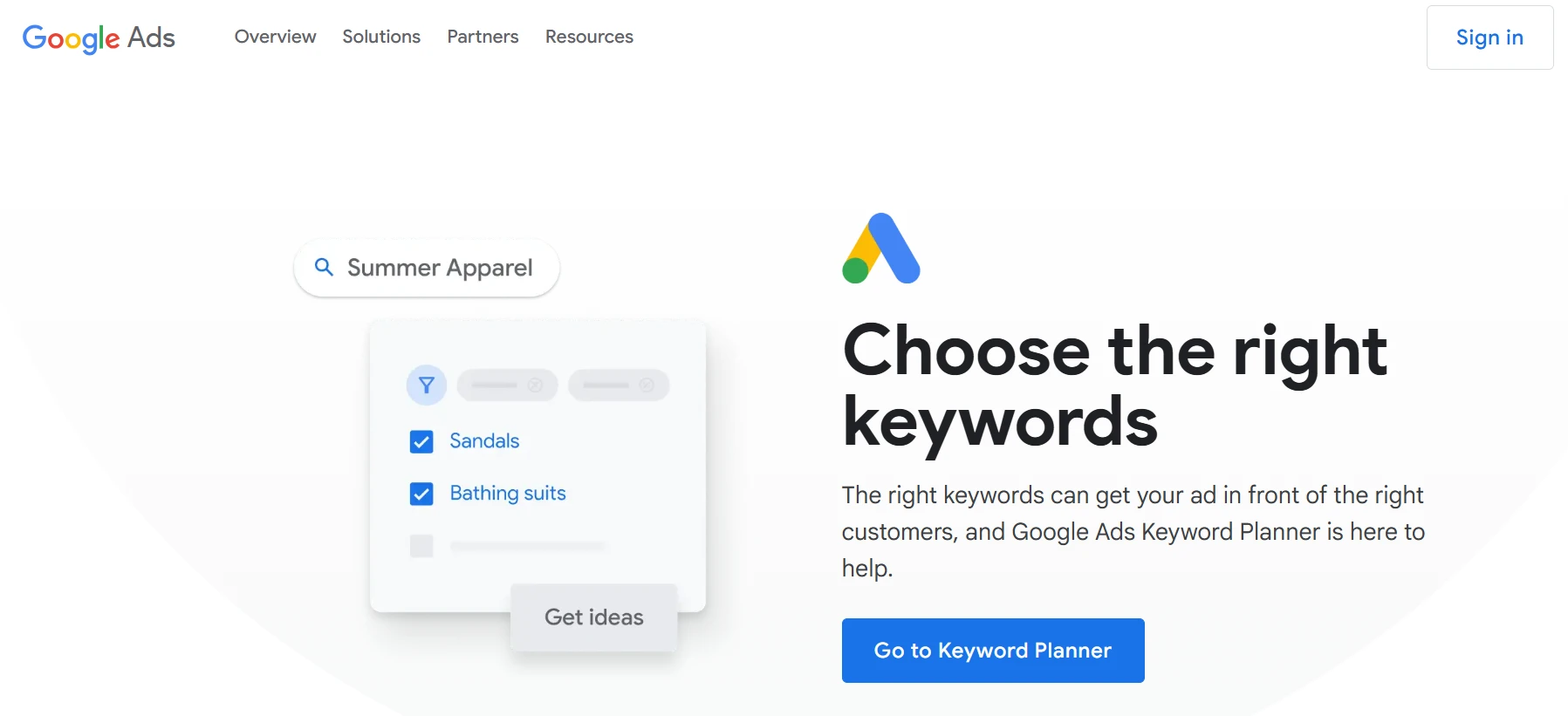
Google Keyword Planner is one of the best free tools for keyword research. It pulls data straight from Google, so the numbers are reliable. It’s built for advertisers, but affiliate marketers can use it too.
How It Works
You enter a keyword, and it shows search volume, competition levels, and related terms. You can also enter a website URL to see what keywords it’s ranking for. That’s useful for spying on competitors.
The tool groups keywords into broad categories, which helps when planning content. But to get exact search volumes, you’ll need an active Google Ads account. Without one, it only gives rough ranges like 1K–10K searches per month.
Best Use Cases
If you want to find high-traffic keywords, Google Keyword Planner is a great starting point. It’s perfect for discovering new topics and getting a sense of demand.
It also helps with local SEO since you can filter results by country, state, or city. That’s useful if you’re targeting a specific audience.
Strengths
- Uses real Google search data.
- Shows monthly search volume trends.
- Helps find keyword ideas based on competitors’ sites.
- Free to use.
Limitations
- Doesn’t show keyword difficulty.
- Gives search volume ranges instead of exact numbers.
- Designed for advertisers, so SEO features are limited.
My Take
Google Keyword Planner is a solid starting point for keyword research, especially if you’re on a budget. It gives direct access to Google’s data, which means you’re getting real search volume insights, not just guesswork.
But it has its limits. Without a Google Ads campaign, search volumes are just rough estimates. And if you need keyword difficulty scores, you’ll have to use another tool.
Still, if you know how to work around its restrictions, it’s a powerful free tool that can uncover great keyword opportunities.
2. Ahrefs Keywords Explorer (Paid)
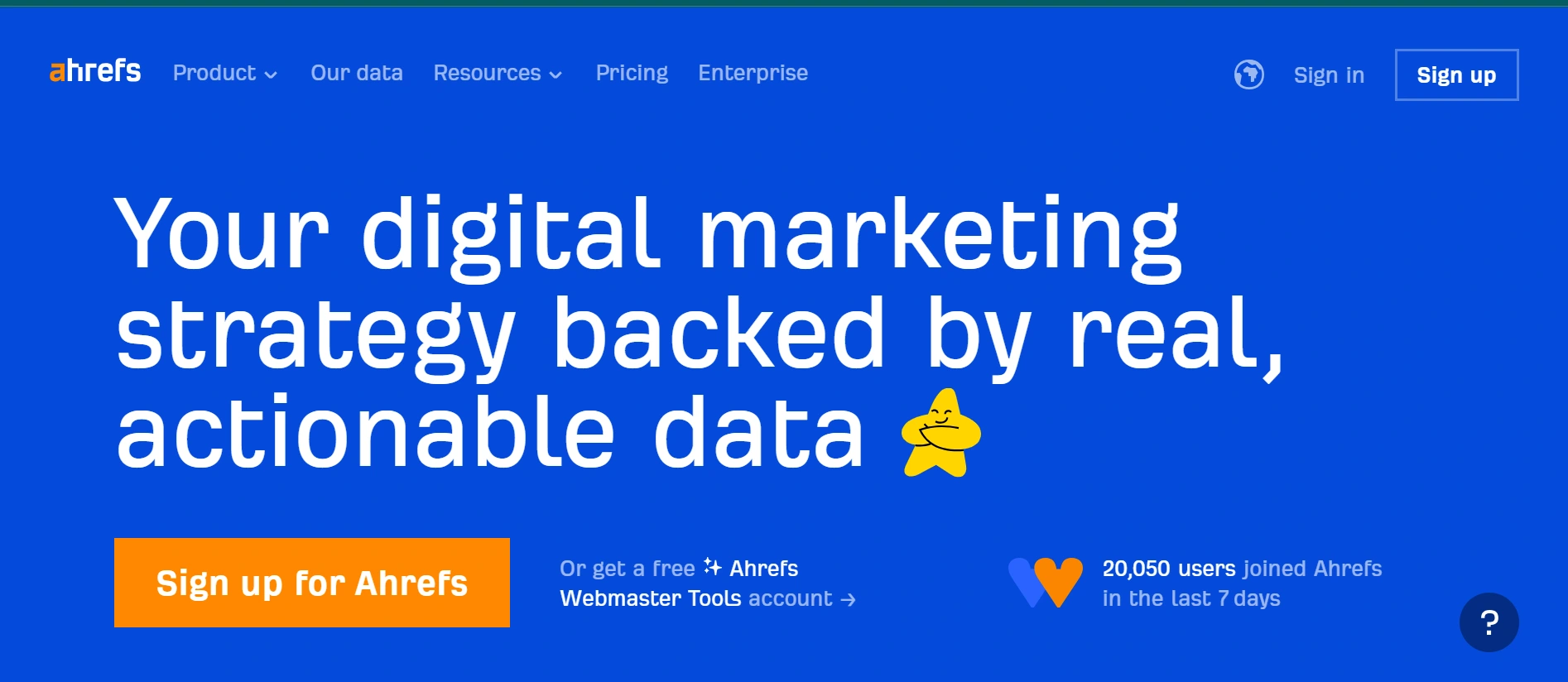
Ahrefs Keywords Explorer is one of the best tools for deep keyword research. It gives you real data on search volume, keyword difficulty, and traffic potential. If you’re serious about ranking, this tool is a game-changer.
Why It Stands Out
Most keyword tools just show search volume. Ahrefs goes deeper. It tells you how hard it is to rank, how much traffic you can get, and what competitors are doing. That last part is gold. You can see exactly which keywords your competitors rank for—and how to outrank them.
The keyword difficulty score is one of the best features. It doesn’t just throw out a number. It shows how many backlinks you’d need to compete. That’s huge when planning content. Instead of guessing, you know upfront if a keyword is worth chasing.
Traffic Potential Matters
Not all keywords bring real traffic. Some get thousands of searches but lead to almost no clicks. Ahrefs shows which keywords actually send visitors to websites. That saves time. No more wasting effort on dead-end keywords.
Who Should Use It?
If you run an affiliate site, Ahrefs is a must-have. It’s built for marketers who want long-term traffic. Beginners might find it overwhelming, but once you learn it, you won’t go back to free tools.
Pricing
Ahrefs isn’t cheap. Plans start at $99 per month. But if SEO is your main traffic source, it’s worth it. The insights you get can easily make up for the cost. Plus, you can always start with a free trial to test it out.
Bottom line? If you want serious keyword research with real data, Ahrefs is the tool to use.
3. SEMrush Keyword Magic Tool (Paid)
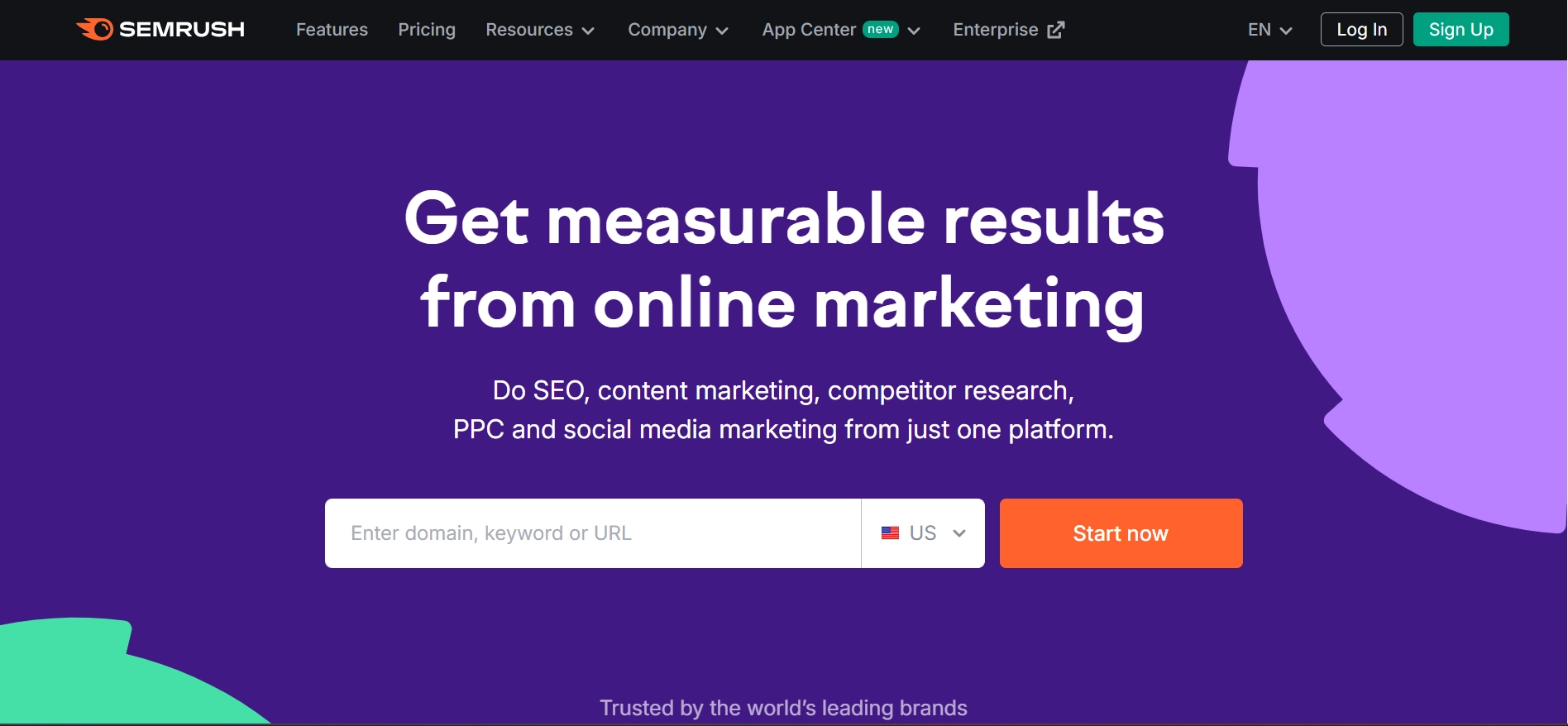
SEMrush’s Keyword Magic Tool is one of the best for finding keyword variations and long-tail keywords. It gives you thousands of ideas based on a single search, breaking them down by topic, competition level, and intent.
It’s perfect for affiliate marketers who want to dig deep into a niche. Instead of chasing broad, competitive terms, you can uncover specific phrases that buyers are actually searching for. That means less competition and higher conversions.
One of its biggest strengths is competition analysis. You can see which keywords your competitors rank for, how difficult they are to beat, and where you have a chance to break in.
It also provides CPC (cost per click) data, which is useful if you plan to run paid ads alongside organic content. Knowing the value of a keyword helps you decide if it’s worth targeting.
Another plus? SEMrush shows SERP features—things like featured snippets, “People Also Ask” boxes, and local results. This tells you how Google is displaying results, so you can optimize accordingly.
For niche affiliate sites, this tool is a game-changer. Instead of competing with massive authority sites, you can focus on low-competition, high-intent keywords that bring in buyers, not just traffic.
Pricing
SEMrush isn’t cheap, but it’s worth it if you’re serious about keyword research.
- Pro Plan – $129.95/month (best for beginners and solo marketers).
- Guru Plan – $249.95/month (adds more tools like historical data and content marketing insights).
- Business Plan – $499.95/month (for agencies or advanced SEO teams).
If you’re just getting started, there is a free limited daily search, but you can unlock more features when you upgrade to the Pro Plan. They also offer a 7-day free trial, so you can test it before committing.
4. Ubersuggest (Freemium)
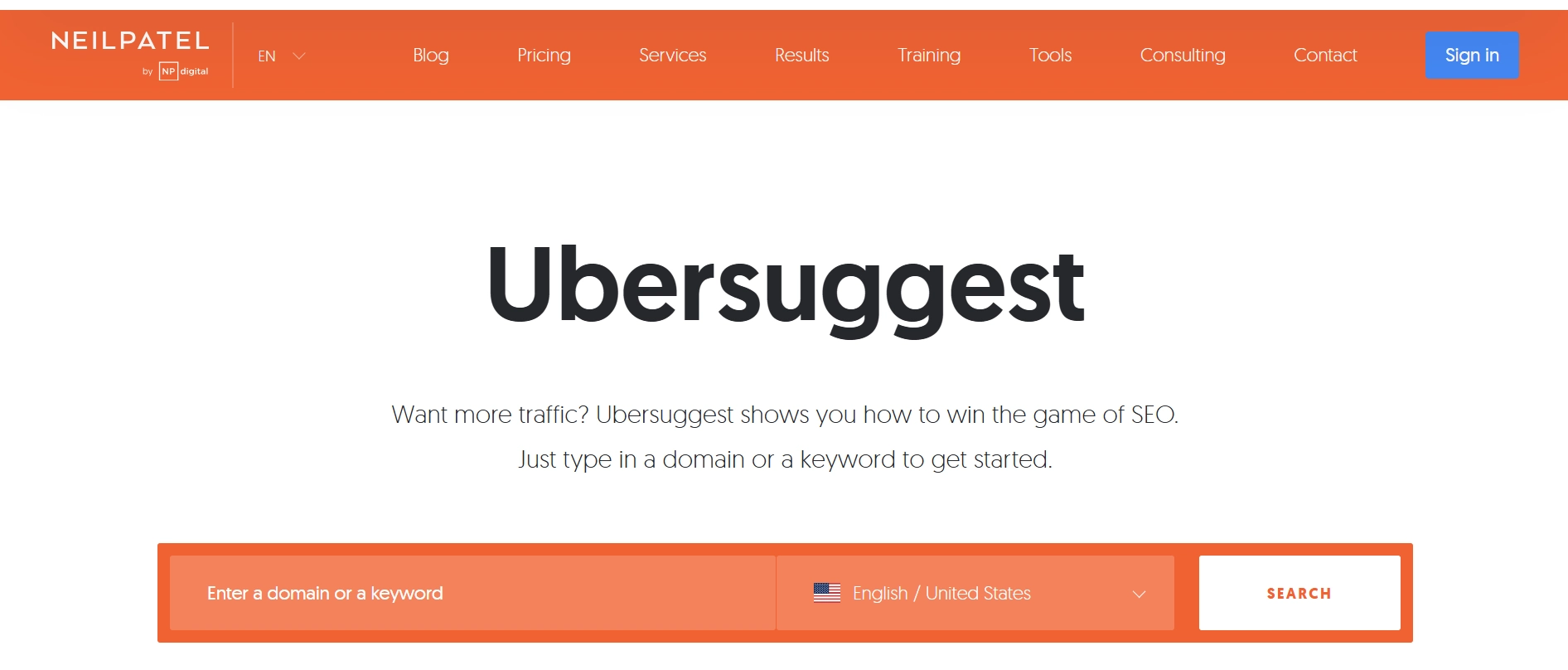
Ubersuggest is one of my go-to keyword research tools. I’ve been using it for years, and it never disappoints. It’s simple, effective, and gives you everything you need to find the right keywords for affiliate marketing.
If you’re looking for a beginner-friendly tool that still delivers powerful insights, this is a great choice.
What Makes Ubersuggest So Useful?
It covers all the essential keyword research metrics without overcomplicating things. Here are five key features that make it stand out:
- Keyword Ideas – Enter a seed keyword, and Ubersuggest generates a list of related keywords, including long-tail variations. This helps you target less competitive phrases that can drive consistent traffic.
- SEO Difficulty – It assigns a difficulty score to each keyword, so you know how hard it will be to rank. This is crucial for finding opportunities where you can compete.
- Search Volume – Ubersuggest shows how many people search for a keyword each month. This helps you focus on keywords that actually bring traffic.
- Domain Overview – You can analyze competitor websites to see what keywords they rank for, how much traffic they get, and where their backlinks come from. This is great for finding gaps in your strategy.
- Content Suggestions – Ubersuggest also suggests blog topics based on trending content. This makes it easier to create articles that people are actively searching for.
Free vs. Paid Version – What’s the Difference?
The free version is a solid starting point. It lets you perform a limited number of searches each day and gives you access to basic keyword metrics. If you’re just testing the waters, it’s enough to get started.
The paid version unlocks the real power of Ubersuggest. You get unlimited keyword searches, deeper competitor analysis, backlink data, and site audits.
If you are serious about growing your affiliate site, the upgrade is worth it. Unlike some expensive tools, Ubersuggest keeps things affordable while still delivering strong insights.
New to keyword research? Start with the free version. Once you see the value, upgrading makes sense—it’s a small investment that can lead to big results.
5. Moz Keyword Explorer: Smart SEO Insights for Affiliate Marketers
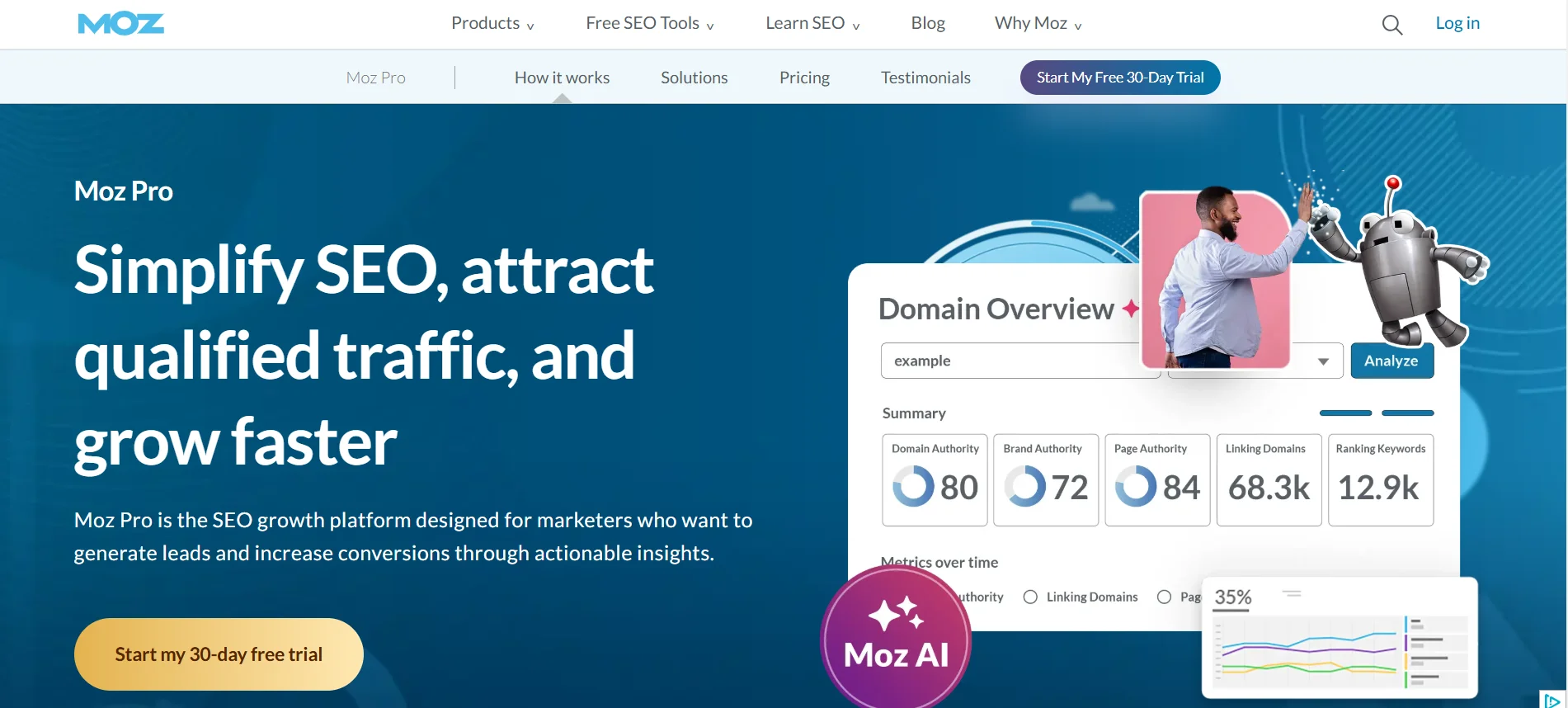
Moz Keyword Explorer is a solid tool for affiliate marketers who care about accuracy and strategic keyword selection. It goes beyond just spitting out keyword ideas as it also helps you understand which ones are actually worth targeting.
Keyword Difficulty & Priority Scores
Some keywords look good on paper but are impossible to rank for. Moz fixes that by giving realistic difficulty scores. It doesn’t just guess. Its algorithm analyzes actual ranking pages to tell you how tough the competition is.
Then there’s the Priority Score, which is a game-changer. It combines search volume, difficulty, and CTR estimates to show which keywords are high-value opportunities. This keeps you from wasting time on searches that either get no traffic or are way too competitive.
SERP Analysis & Keyword Suggestions
Moz doesn’t stop at numbers. It analyzes live search results (SERPs) so you can see what’s already ranking. That means you’ll know who you’re up against and whether your site stands a chance.
It also suggests closely related keywords based on real search trends. Instead of just showing variations of the same phrase, Moz finds semantic keywords that Google actually associates with your topic. That’s big for SEO.
Best for SEO-Focused Affiliate Marketers
If you rely on organic traffic, Moz is worth considering. It’s not just about keyword research but its also a SEO toolbox that helps you make smart ranking decisions.
It’s especially useful for niche sites where every keyword choice matters. Whether you’re writing product reviews or comparison articles, Moz helps you pick battles you can win.
Pricing
Moz Keyword Explorer comes with Moz Pro, which starts at $99/month. That includes rank tracking, site audits, and backlink analysis. If you just want keyword research, the free version lets you check 10 queries per month which is relatively enough to test it out.
If you want a long-term SEO, the paid plan is a smart investment. It saves time, removes guesswork, and helps you rank for keywords that actually bring traffic.
6. KWFinder by Mangools (Paid)
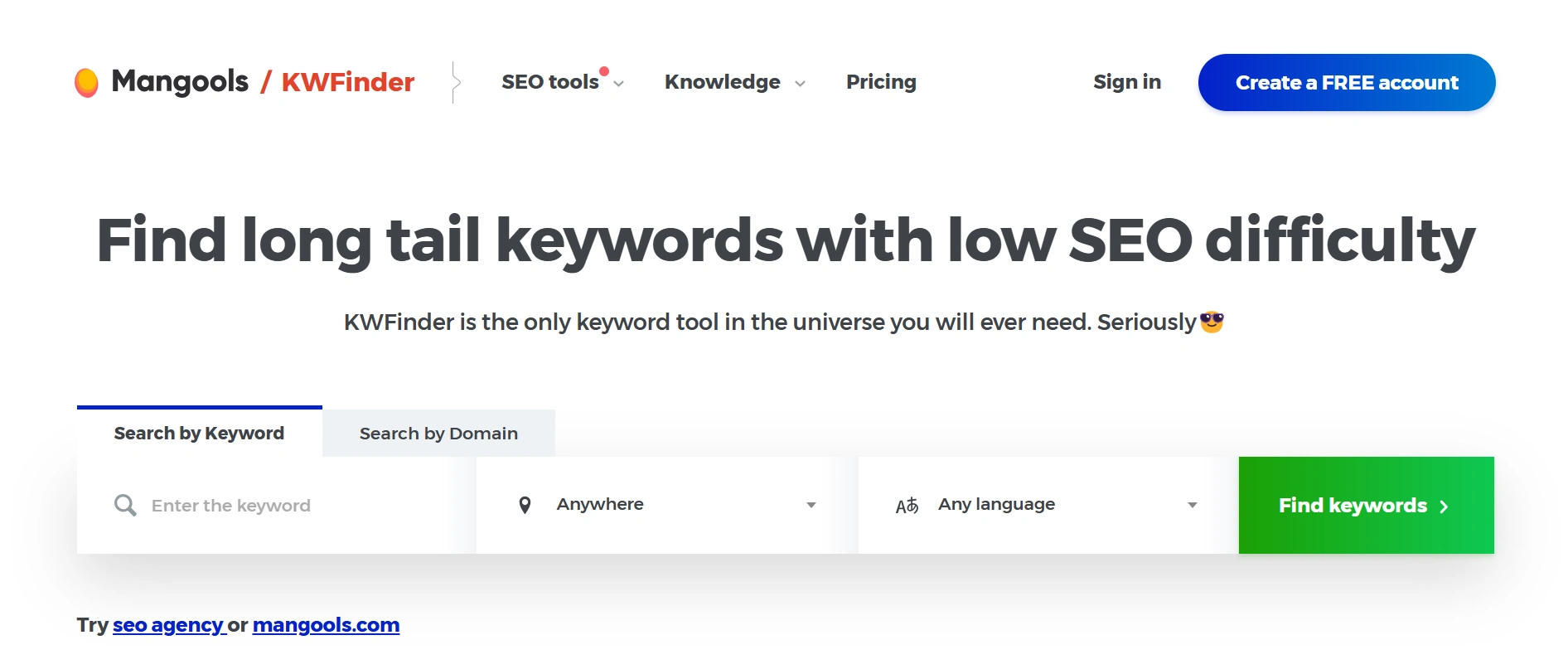
KWFinder is one of the best tools for finding long-tail, low-competition keywords. It simplifies the process, making it perfect for affiliate marketers who want to rank without fighting big authority sites.
The interface is clean and easy to use. No complicated dashboards or overwhelming data. Just type in a keyword, and KWFinder pulls up search volume, difficulty scores, and competitor rankings.
Everything is laid out in a way that makes sense, even for beginners.
One of its best features is keyword difficulty scoring. It tells you exactly how hard it’ll be to rank for a keyword. Green means easy, orange is moderate, and red is tough. This helps avoid wasting time on terms that are impossible to rank for.
KWFinder is built for niche sites. It shines when researching long-tail keywords that bigger brands overlook. If the goal is to rank quickly and drive consistent traffic, this tool is a strong choice.
Recommended reading: How to Drive Organic Traffic to Your Affiliate Links Using Long-Tail Keywords
Pricing
Pricing starts at $49 per month for the Basic plan, which covers keyword research and SERP analysis.
The Premium plan, at $69 per month, adds more daily searches and backlink analysis. For power users, the Agency plan runs $129 per month with even higher limits. If billed annually, there’s a decent discount.
Mangools also bundles KWFinder with other SEO tools like SERPChecker and LinkMiner. That makes it a solid investment for those handling multiple sites.
For affiliate bloggers focused on organic traffic, KWFinder takes the guesswork out of keyword research. Simple, accurate, and built for results.
7. AnswerThePublic (Freemium)
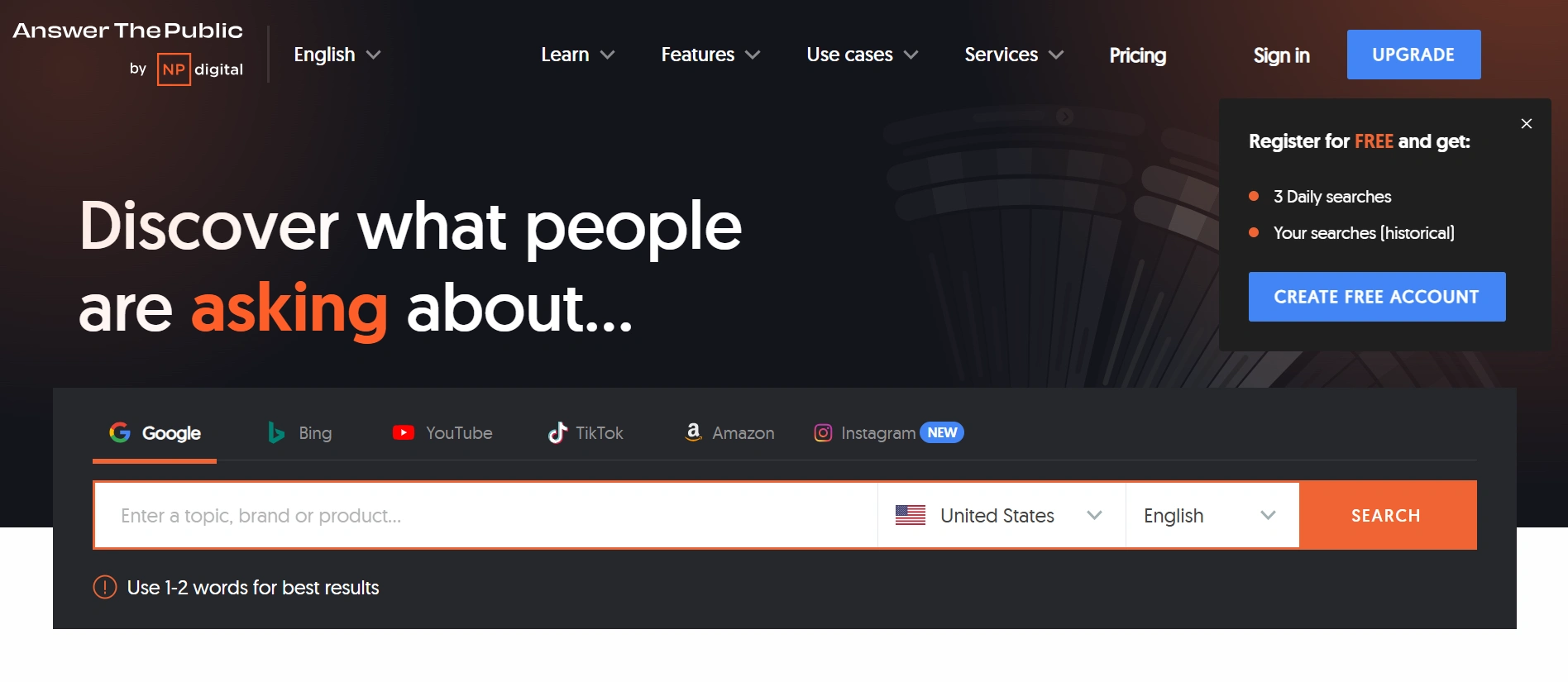
AnswerThePublic is a goldmine for content ideas. Instead of just giving keywords, it shows real questions people ask online. These questions come straight from Google’s autocomplete data, so you know they matter.
The tool is perfect for blog posts and FAQ sections. It lays out results in a visual map, making it easy to spot patterns. If you want to create content that directly answers user intent, this tool delivers.
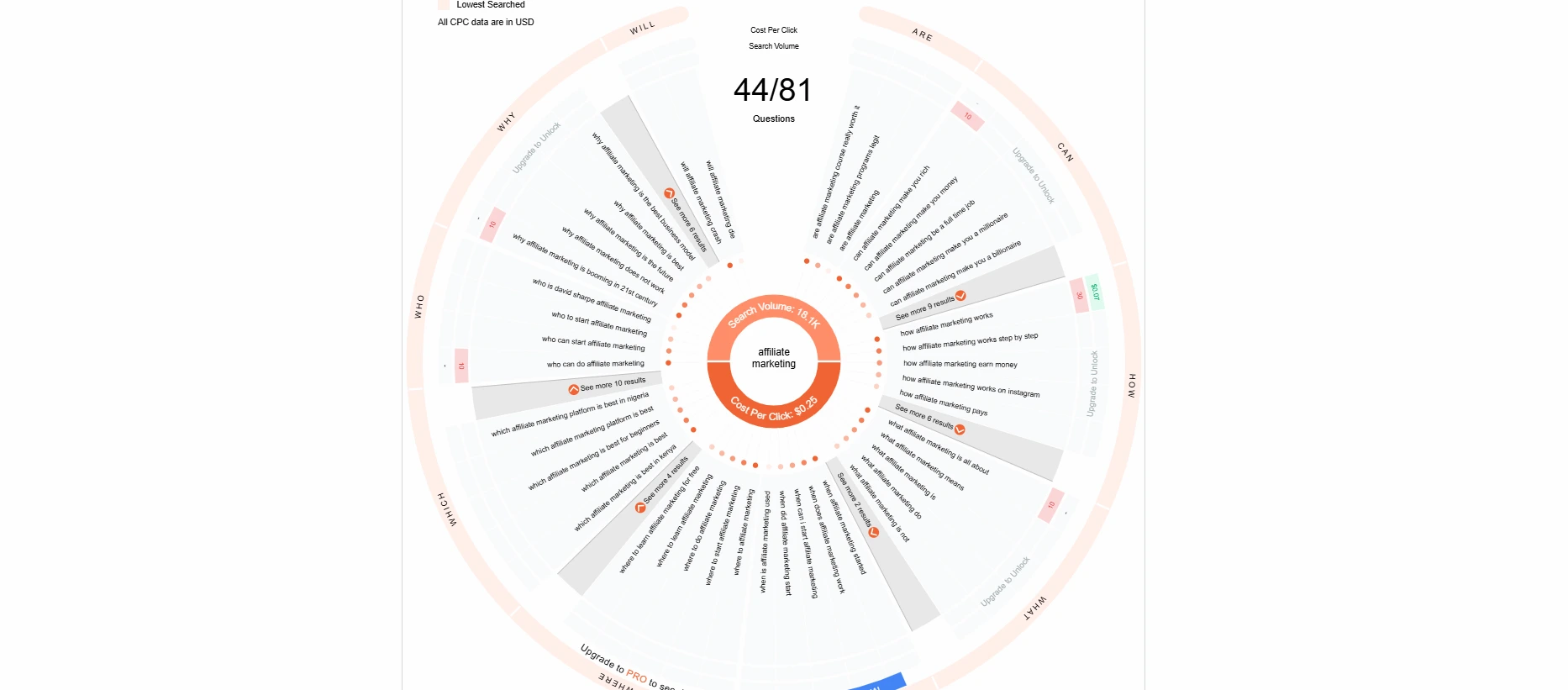
Let’s say you run an affiliate site about fitness. Type in “protein powder,” and AnswerThePublic will show related questions like:
- Which protein powder is best for weight loss?
- Can I take protein powder daily?
- How much protein powder should I use?
Each question can be a blog post, a section in an article, or even a video idea. This makes it one of the best tools for planning content that ranks and converts.
The free version gives a few searches a day, while the paid version unlocks more data and filters. If you’re running multiple sites, the paid plan might be worth it.
Bottom line? AnswerThePublic helps you create content people actually search for—no guessing, no wasted effort. If you’re stuck on ideas, start here.
8. KeywordTool.io (Freemium)
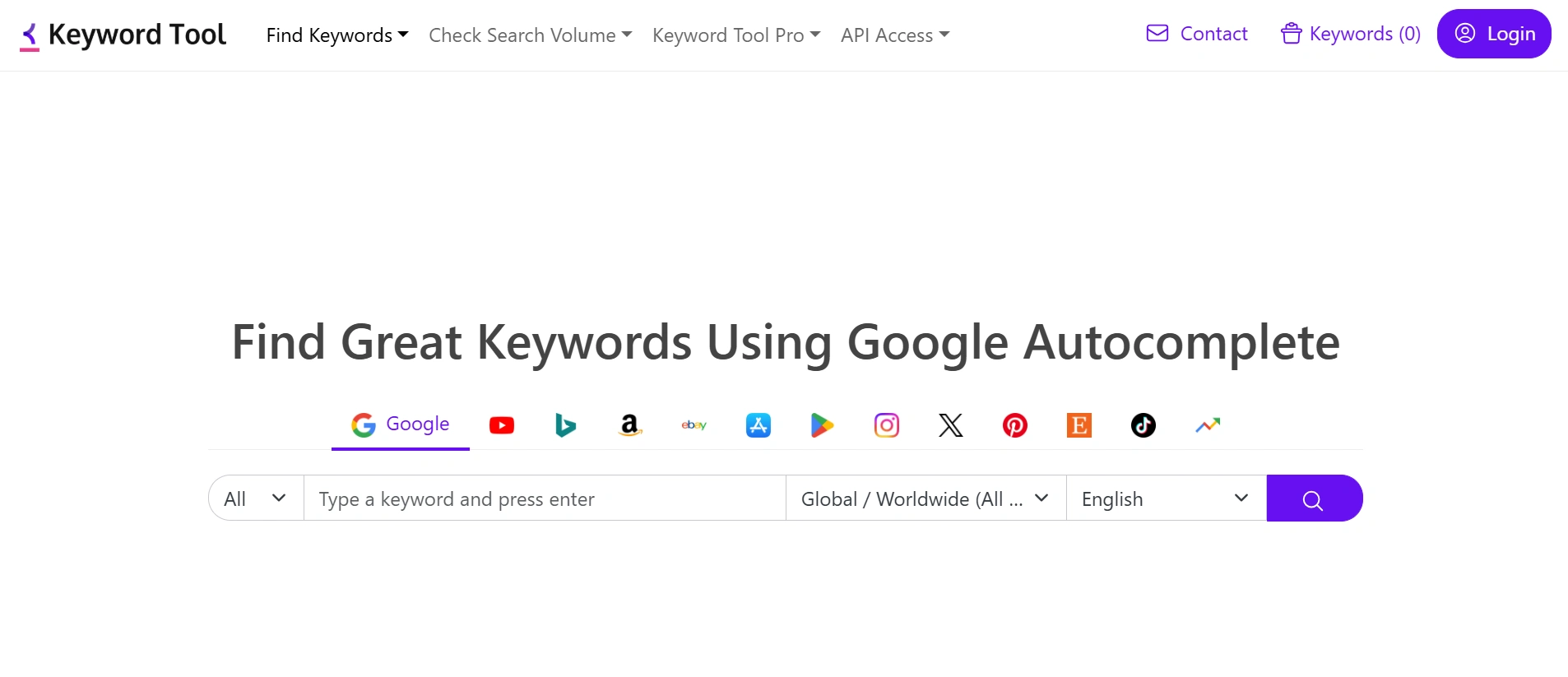
KeywordTool.io is a solid option for finding long-tail keywords fast. It pulls data from Google Autocomplete, which means the keyword ideas come straight from what people are actually searching for. Just real user queries.
The best part about this tool is that it doesn’t just stop at Google. It also pulls keyword suggestions from YouTube, Bing, Amazon, eBay, and even Instagram. That makes it perfect if you’re targeting multiple platforms.
One big advantage is speed. Just type in a seed keyword, and it spits out hundreds of variations in seconds. You get a long list of real search terms people are using, which makes it great for finding low-competition keywords that bigger sites might overlook.
The free version gives you keyword suggestions, but that’s about it. No search volume, competition data, or CPC info. If you’re serious about keyword research, you’ll need the premium version, which unlocks all the important metrics.
Paid plans start at around $69 per month, which is a bit steep compared to other tools. But if you like Google Autocomplete-style research and need a massive list of keyword ideas, it might be worth it.
9. Keyword.com (Paid)
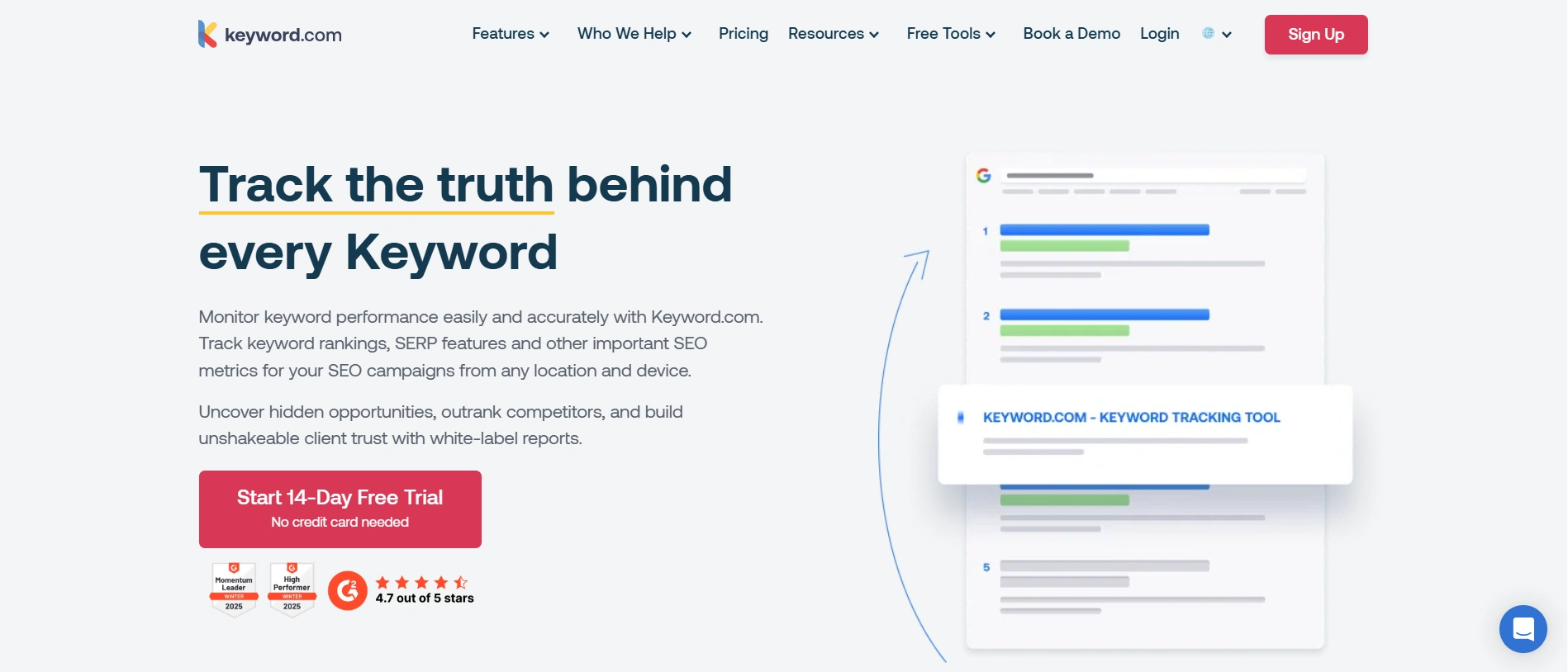
Keyword.com is a premium rank-tracking tool built for marketers who need precise, real-time keyword data. Unlike free tools that provide rough estimates, this one gives exact rankings based on location.
For affiliate marketers, this is a game-changer. If you’re promoting a product in the U.S. and Canada, Google’s general ranking reports won’t show the regional differences. Keyword.com will. You can track rankings in specific countries and adjust your strategy based on real data.
One of its most useful features is Share of Voice (SoV). Instead of just showing where you rank, it tells you how much search traffic you’re actually capturing compared to competitors. A small rank drop doesn’t always mean a loss in traffic, and SoV helps you see the bigger picture.
Another major advantage is daily ranking updates. Many SEO tools refresh rankings only a few times per week. Keyword.com updates them daily, so you can spot trends fast. If a Google update shakes things up or a competitor starts climbing, you’ll know right away.
As for pricing, Keyword.com starts at $24 per month for tracking 50 keywords. If you need more, the $99/month plan covers 500 keywords. It’s not the cheapest tool, but the accuracy and real-time data can make it worth the cost.
10. Serpstat: A Solid All-in-One SEO Tool
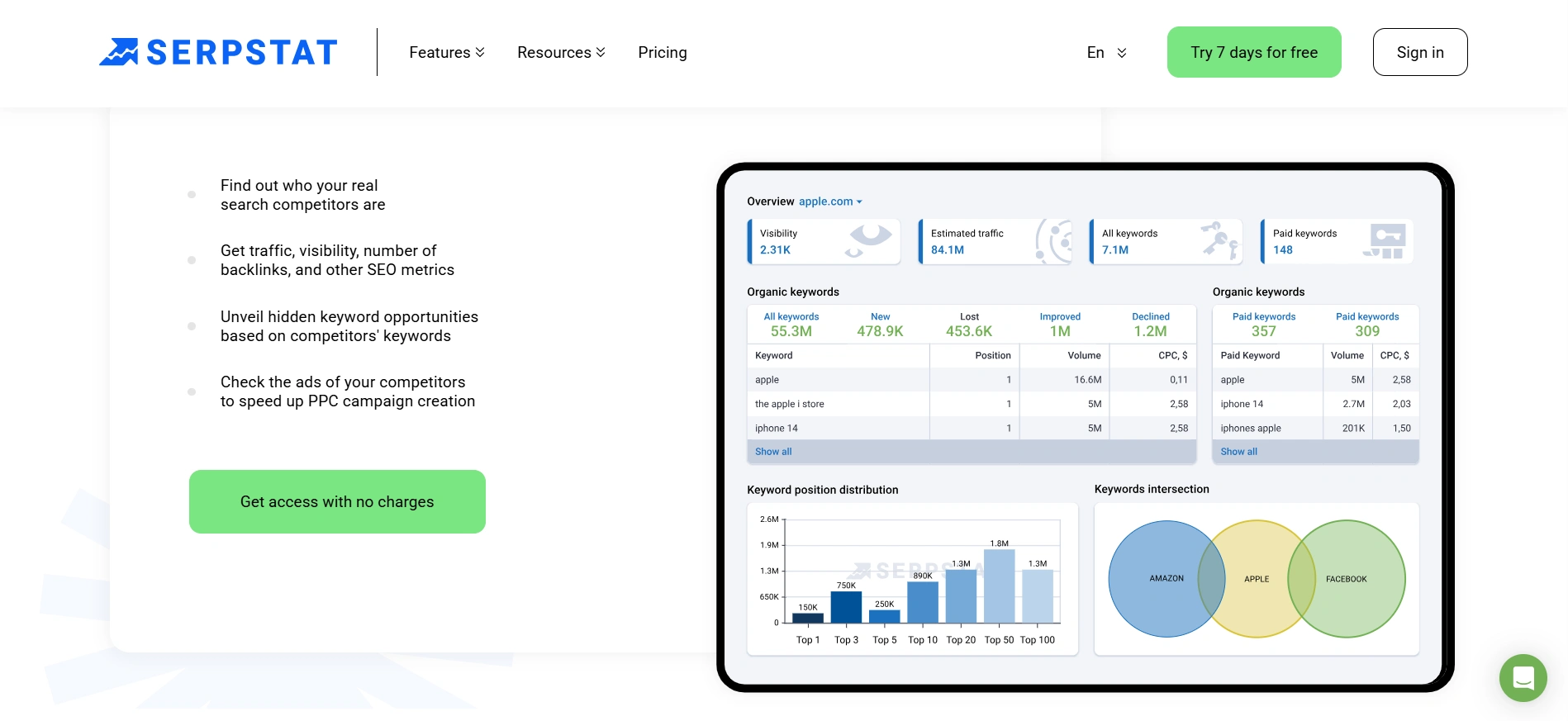
Serpstat is a powerful tool for affiliate marketers who need more than just keyword research. It combines keyword tracking, backlink analysis, PPC insights, and competitor research—all in one place. If you run multiple sites, this tool can save you a lot of time.
One of its biggest strengths is backlink analysis. You can see who’s linking to your competitors, which helps you find link-building opportunities. It also tracks lost and new backlinks, so you know when a site drops your link.
Another standout feature is keyword trends. It doesn’t just give search volume; it shows how interest changes over time. That’s useful for spotting seasonal keywords before they peak.
Serpstat also has a strong PPC section. If you run paid ads, you can see which keywords competitors are bidding on and what their ads look like. This can help you target profitable keywords while avoiding the overpriced ones.
Pricing
Now, let’s talk pricing. Serpstat starts at $55 per month for the Lite plan. That’s cheaper than Ahrefs or SEMrush, but still a bit pricey if you’re just starting. The Standard plan ($119/month) adds more data and features for agencies or larger sites.
If you need an affordable alternative to the big SEO tools, Serpstat is worth a look. It’s not as detailed as Ahrefs, but for all-in-one research, it gets the job done.
Conclusion
Keyword research isn’t optional in affiliate marketing. It’s the difference between ranking on Google and getting buried under thousands of pages. You can write the best content, but if no one’s searching for it, it won’t matter.
Start with free tools. Google Keyword Planner and Ubersuggest can get you moving without spending a dime. They give you search volume, keyword ideas, and competition insights—enough to find solid opportunities.
Once you understand how keywords work, paid tools make a big difference. Ahrefs, SEMrush, and Ubersuggest dig deeper, showing competition levels, backlink opportunities, and search trends. They’re worth it if you want serious traffic.
The key is to start. Pick a tool, research a keyword, and write content around it. The sooner you do, the sooner you’ll see results.
Frequently Asked Questions
What is the best keyword research tool for beginners?
If you’re new to keyword research, Google Keyword Planner is a solid starting point. It provides search volume, competition levels, and keyword ideas directly from Google. Ubersuggest is another beginner-friendly tool that simplifies keyword research with easy-to-read metrics and free limited searches.
Do I need a paid keyword research tool?
Not at first. Free tools like Google Keyword Planner, Ubersuggest, and AnswerThePublic can help you find decent keywords without spending money. However, paid tools like Ahrefs, SEMrush, and KWFinder offer more in-depth data, including keyword difficulty, backlink analysis, and competitor research, making them worth the investment as your site grows.
How do keyword research tools help with SEO?
These tools help you find high-traffic, low-competition keywords that are easier to rank for. They also show related keyword ideas, search trends, and how competitive each keyword is. With this data, you can optimize your content for terms that actually drive traffic and conversions.
Can I rely only on keyword research tools for SEO?
No, keyword research is just one part of a successful SEO strategy. You also need well-written content, strong on-page SEO, fast site speed, and quality backlinks to rank. Even the best keywords won’t help if your content doesn’t provide real value or if your site lacks authority.
How often should I do keyword research?
SEO is always changing, so you should regularly update your keyword strategy. At a minimum, check your keywords every month to see how rankings shift and spot new opportunities. Keeping an eye on trends helps you stay ahead of competitors and ensures your content remains relevant.






